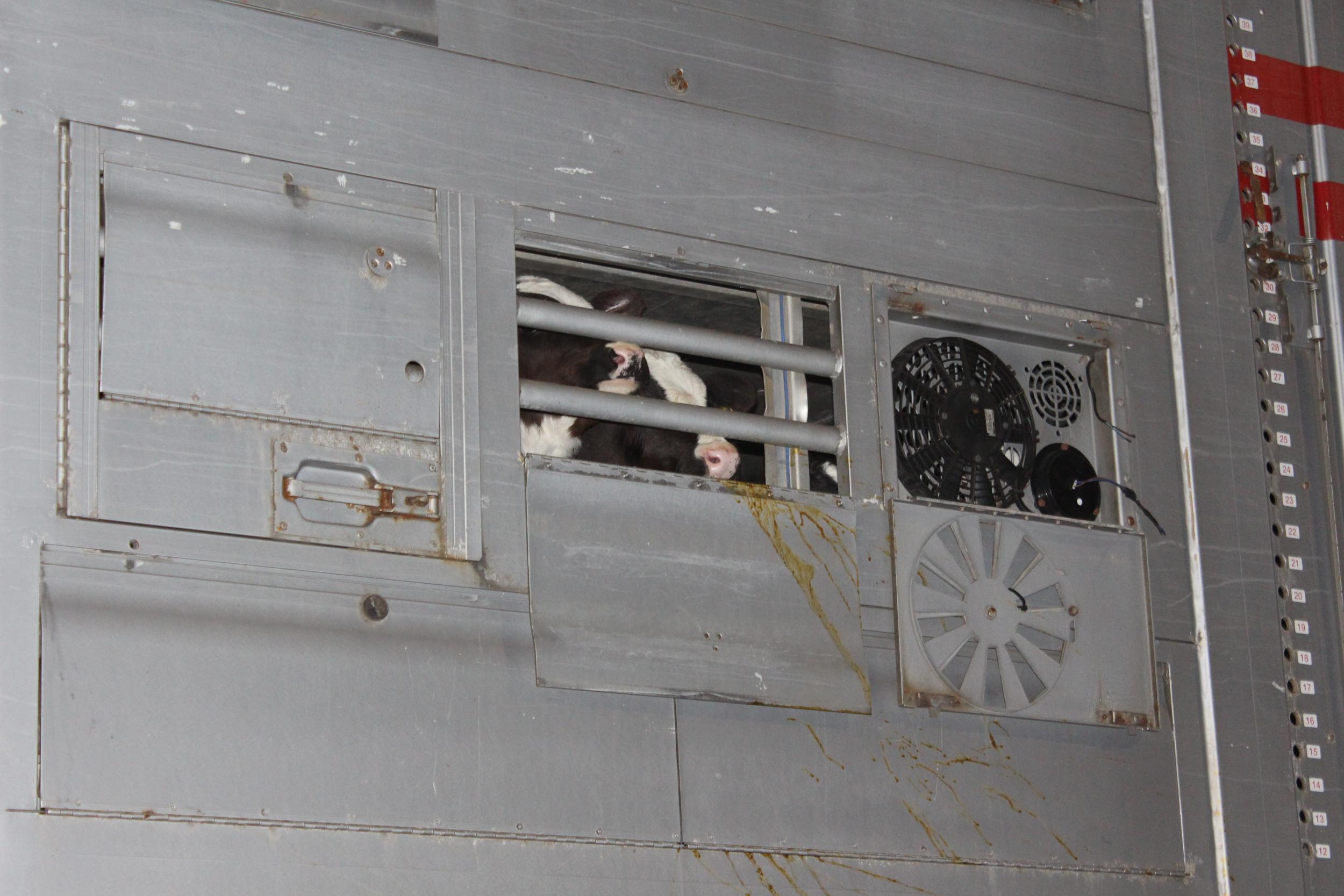Theresa May’s Brexit deal kills hopes of ban on live animal exports, campaigners warn
Exclusive: ‘Those people who voted to leave the EU for this reason will feel very cheated’
Your support helps us to tell the story
From reproductive rights to climate change to Big Tech, The Independent is on the ground when the story is developing. Whether it's investigating the financials of Elon Musk's pro-Trump PAC or producing our latest documentary, 'The A Word', which shines a light on the American women fighting for reproductive rights, we know how important it is to parse out the facts from the messaging.
At such a critical moment in US history, we need reporters on the ground. Your donation allows us to keep sending journalists to speak to both sides of the story.
The Independent is trusted by Americans across the entire political spectrum. And unlike many other quality news outlets, we choose not to lock Americans out of our reporting and analysis with paywalls. We believe quality journalism should be available to everyone, paid for by those who can afford it.
Your support makes all the difference.Theresa May’s Brexit deal agreed with the EU could kill off moves to end the “torturous” live export trade of thousands of animals from Britain, it is feared.
Campaigners who want to see an end to the transport – in which young calves and sheep routinely die or suffer severe health problems – believe the UK’s withdrawal agreement may make a ban impossible.
It would mean an indefinite continuation of the “mass misery” that campaigners have been fighting for decades.
Environment secretary Michael Gove suggested earlier this year he was considering a ban on live exports for slaughter post-Brexit, and held a public consultation, in which many respondents supported the idea.
But campaigners who have studied the draft Brexit agreement, published last week, say the document could undermine plans for a ban. The Northern Ireland backstop protocol states: “Quantitative restrictions on exports and imports shall be prohibited between the Union and Northern Ireland” – effectively insisting on free movement of goods.
Animal lovers who had hoped Brexit could allow for a ban fear that instead this wording will create a loophole that would prevent one.
If Britain puts a block on live exports, sheep and cattle farmers would be highly likely to charter vessels to ship animals to Northern Ireland, from where they would be taken the Republic and then the Continent, Compassion in World Farming believes.
The worries have arisen as activists are focused on the port of Ramsgate in Kent, where exports of calves from Scotland, just a few days old, have restarted.
Peter Stevenson, chief policy adviser at Compassion in World Farming, said there was a precedent for exporters using the Northern Ireland route. Until last month, unweaned calves were sent from Scotland to the province then driven by road to the Irish Republic before being sent to Europe.
Our message to the government: Please get clarification from Europe that there should be an exception for live animals
“We are deeply worried,” he told The Independent. “I imagine those drafting this document didn’t think about live exports but our message to the government would be ‘Please get clarification from Europe that there should be an exception for live animals’.
“The science is very clear: young calves can’t cope with long journeys – their immune systems are low so they’re susceptible to disease when stressed and can’t control their temperatures.”

Mr Stevenson said his charity was immensely disappointed by the Scottish government’s support for live exports, and that the beef and dairy industries should work together to raise calves for beef, reducing the UK’s bill for beef imports.
“We don’t have a view on Brexit, but a lot of our supporters in the run-up to the EU vote were very excited about getting an end to live exports and voted to leave for that reason, but if they find this deal hampers a ban, they will feel very cheated.”
Until now, the government has always argued EU law on movement of goods prevented the UK from implementing a live-export ban.
Official figures show that each year at least 4,000 sheep are transported from the UK to Europe for slaughter, with an estimated 6,000 calves exported from Scotland via Northern Ireland, mostly to Spain and Italy.
Krissie Richards, who has witnessed recent live exports through Ramsgate, said: “These calves are still babies, suckling our hands for comfort. It’s truly heartbreaking.”
Thanet council banned exports from Ramsgate after 47 sheep died at the port in 2012 but it was forced by the High Court to backtrack.
When asked whether Mr Gove was aware of the likely effect of the loophole, a spokesperson for the Department for Environment, Food and Rural Affairs said: “We have consistently said we will control the export of live farm animals for slaughter once we leave the European Union.
“Earlier this year we sought evidence on how we could achieve this, including through a possible ban.
“We will set out next steps in due course. In the meantime, negotiations on our future economic partnership with the European Union are ongoing this week.”
The Independent has also asked the Brexit department to comment.

Join our commenting forum
Join thought-provoking conversations, follow other Independent readers and see their replies
Comments